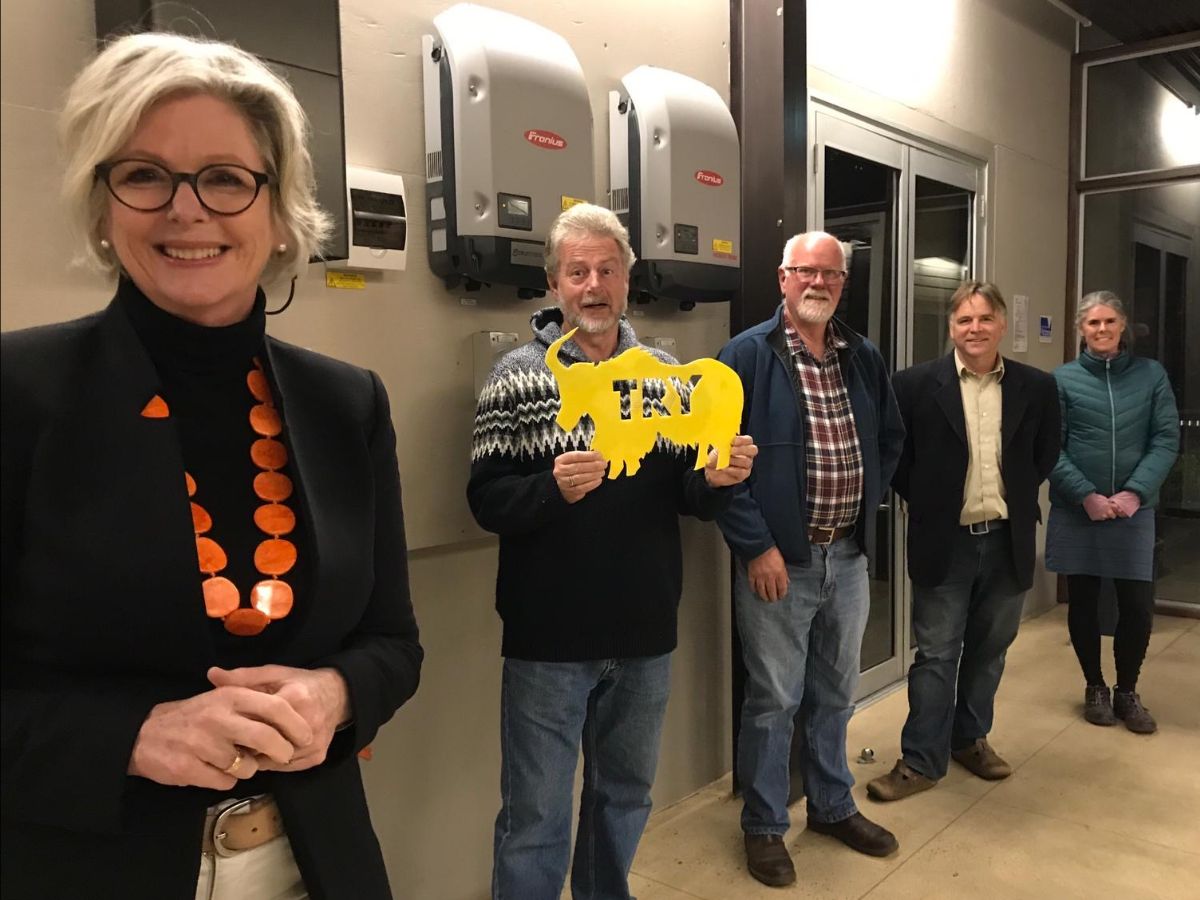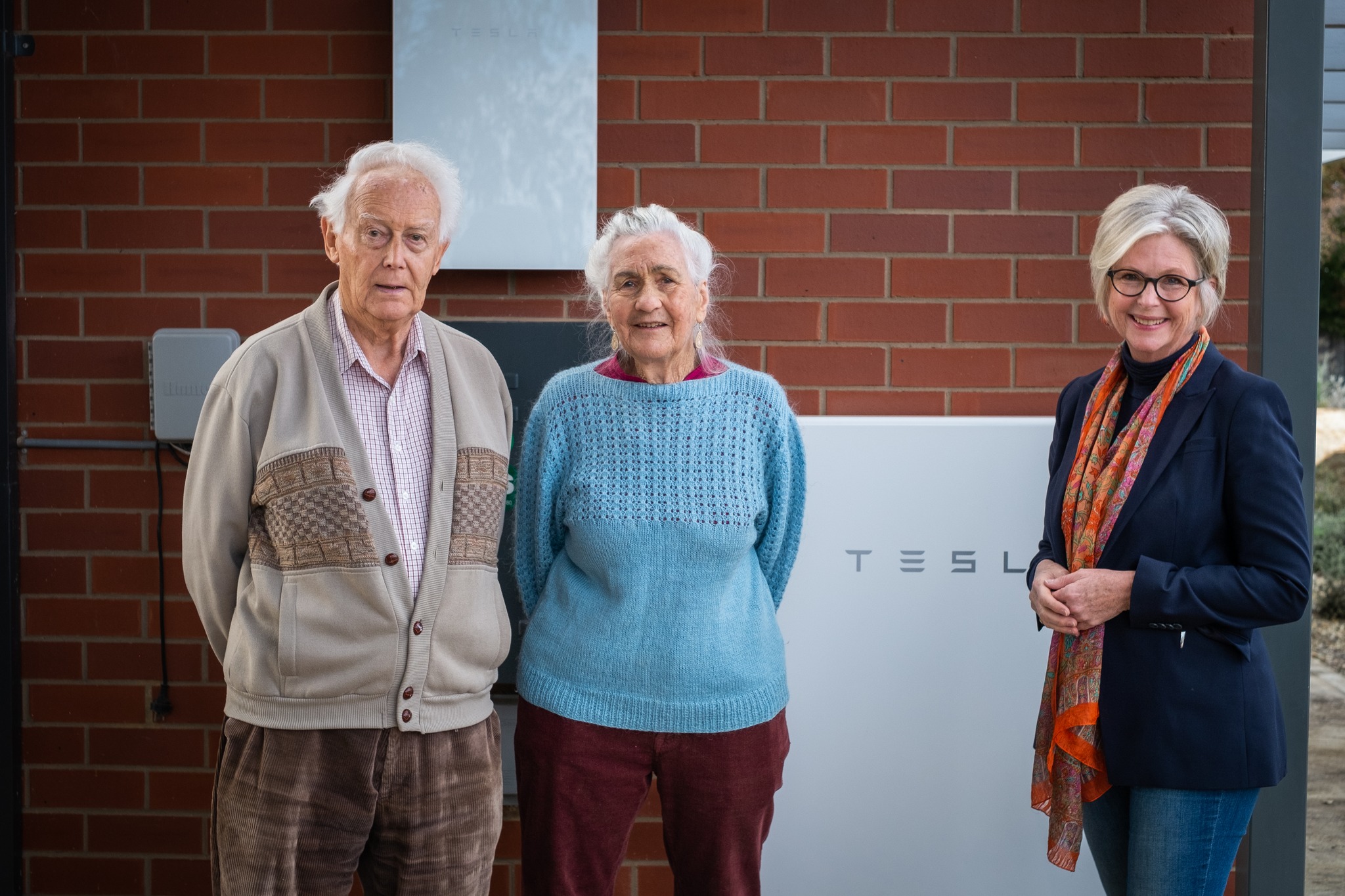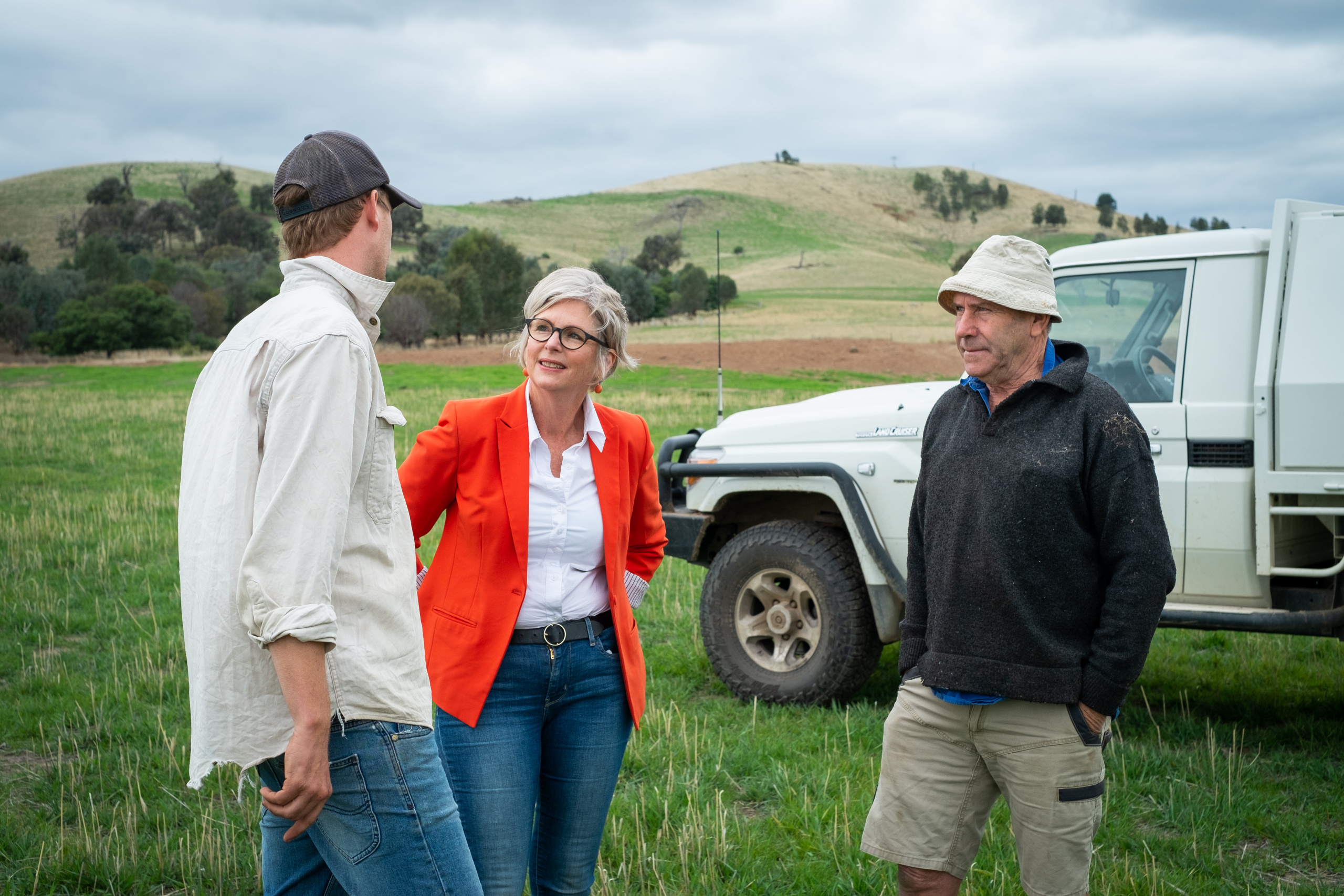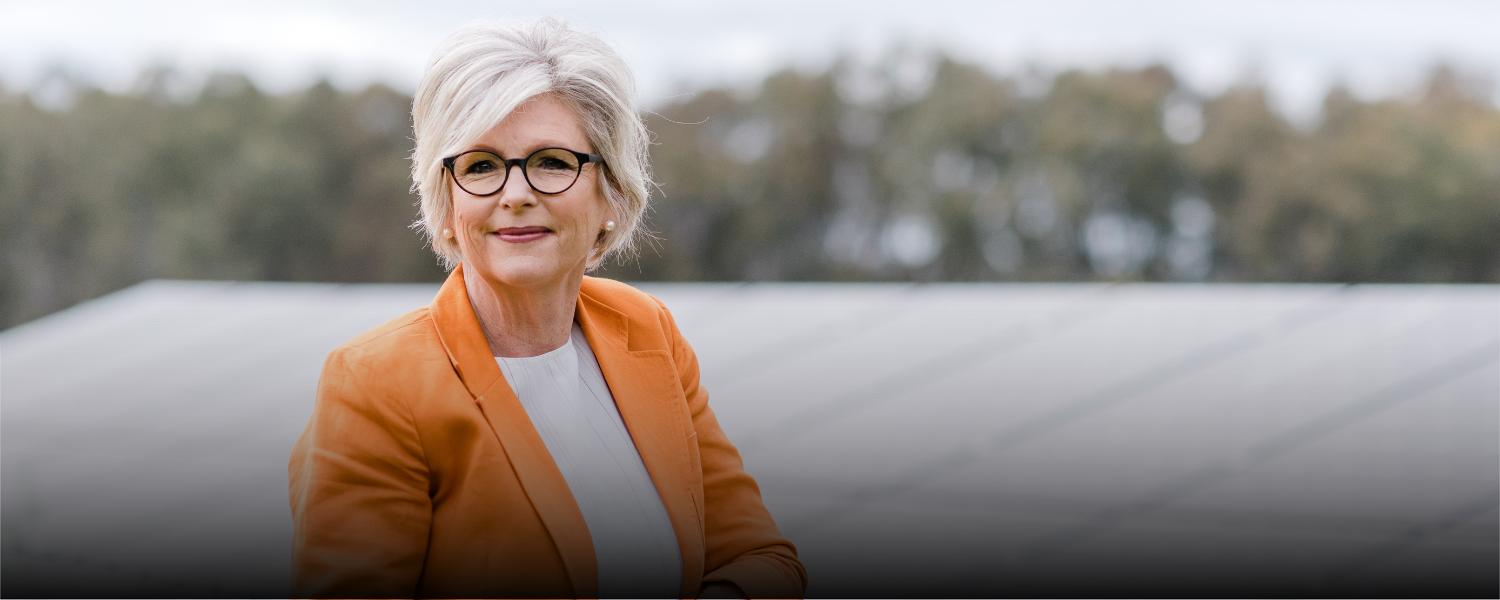Taking common-sense and practical action on climate change
Tackling climate change with Australian smarts and grit – creating new opportunities for the regions.
Rural and regional Australians don’t need to be convinced that action must be taken to address climate change.
In Indi we have experienced the impacts of our changing climate from storms, floods and bushfires.
Regional Australians understand resilience and are leading the way in emergency management and disaster recovery. We just need Governments to listen to us.

Locally-owned, cleaner and cheaper energy
Renewable energy is the cleanest and cheapest form of energy, and more than a dozen community groups in Indi have taken the initiative to harness the benefits of renewable energy generation and storage.
When I was elected to Parliament, I committed to working with local communities to develop a plan to drive locally-owned renewable energy projects in the regions. Together we unveiled the Local Power Plan in 2020, a comprehensive roadmap to unlocking the potential of renewable energy in regional Australia.
Indi is leading the way in community energy and setting an example for the nation to follow.
What I've achieved
- I have helped secure over $7 million for local renewable energy projects including:
- $1.9 million for a micro-grid in Wodonga to lower bills for businesses.
- $3.6 million for community batteries in the Upper Murray to store power for emergencies.
- $540,000 to develop community batteries in Beechworth, Bright, and Mt Beauty.
- $615,000 to develop a community battery in Corryong.
- $14,000 to install a solar and battery system on the Rutherglen. Senior Citizens’ Clubroom.
- $100,000 for the Jamieson Community Energy Node.
- $11,000 for a solar and battery system at the Y Water Discovery Centre in Yea.
- $9,000 for a battery and energy efficient lights for the Merrijig Public Hall.
- Community Engagement Review
- With the renewable energy transition underway in regional Australia, I recognised a growing tension within some farming communities whose concerns weren’t being listened to by the large companies planning renewable energy projects close to their properties. So, I worked with Independent Senator for the ACT David Pocock, and the Minister for Climate Change and Energy Chris Bowen to establish a review in 2023 to improve community engagement for renewable energy infrastructure projects. I ensured the Terms of Reference of the Community Engagement Review considered issues important to our regional communities, such as the impact of projects on agricultural land, fire risks and emergency management, and increases in landholder insurance premiums. I also made sure the review examined benefit-sharing opportunities such as local jobs, training, and co-investing in large-scale projects for regional communities. You can read my full submission to the review here. The findings of the Community Engagement Review were released in July and can be viewed here. Regional communities deserve best practice community engagement to have their concerns heard and the opportunity to seize the long-term benefits of the renewables boom.
- Appeared on the Stateline program, highlighting the importance of community benefit from renewable energy Infrastructure.

Making home batteries cheaper
More than one-third of Australians have installed rooftop solar panels on their homes to reduce their energy bills and reliance on fossil fuels.
However, just one percent of these homes have a battery. Why? Because they are too expensive for the average family to afford.
Many people in Indi have told me that if home batteries were more affordable, they would install one.
I’ve introduced a Bill to do just that. Costed at just $3.6 million, my plan would reduce the cost of home batteries. With more people installing batteries at home, the stress on the electricity grid would be reduced resulting in less blackouts and building greater energy resilience within our regional communities.
What I've achieved
- Introduced the Cheaper Homes Batteries Bill in February 2022 and re-introduced in the new term of Parliament in 2023.
- Citied opportunities to support community energy in my 2023 Budget Submission to the Treasurer.
- Facilitated a meeting between Totally Renewable Yackandandah and Minister Bowen, to discuss Government support for community energy groups.
- Met with Assistant Minister for Climate Change and Energy Jenny McAllister to discuss home electrification and cheaper home batteries.
- Worked to secure $1 billion in the Federal Budget towards the Household Energy Upgrades Fund to provide households with low-cost loans for solar panels, modern appliances and double glazing.

Keeping regional agriculture strong
Growing up on a dairy farm, I understand the impact the weather has on the livelihood of farmers and producers. Rapidly changing climate patterns threaten the future of agriculture in Australia.
Cotton yields declining by 17%, beef production down by 33% and overall agricultural productivity dropping by 17% – that’s what some of our best scientists predict if we fail to act decisively on climate change by 2050.
Right across Indi farmers tell me they want to reduce their emissions, but just haven’t had support from Government to do so.
Farmers are some of the most innovative and resilient people in our communities, but to keep our agriculture sector strong as we transition to net zero, we need to equip our farmers with evidence-led research and technologies.
What I've achieved
- Secured Government funding for my climate-smart farmers plan, an investment of more than $300 million over five years to support farmers to act on climate and improve agricultural practices. This includes $40.7 million for Sustainable Agriculture Facilitators which I long campaigned for.
- $1 million for drought-resilience projects through the Drought Communities Program in Benalla.
- $2 million for drought resilience projects in Strathbogie Shire through the Drought Communities Program.

